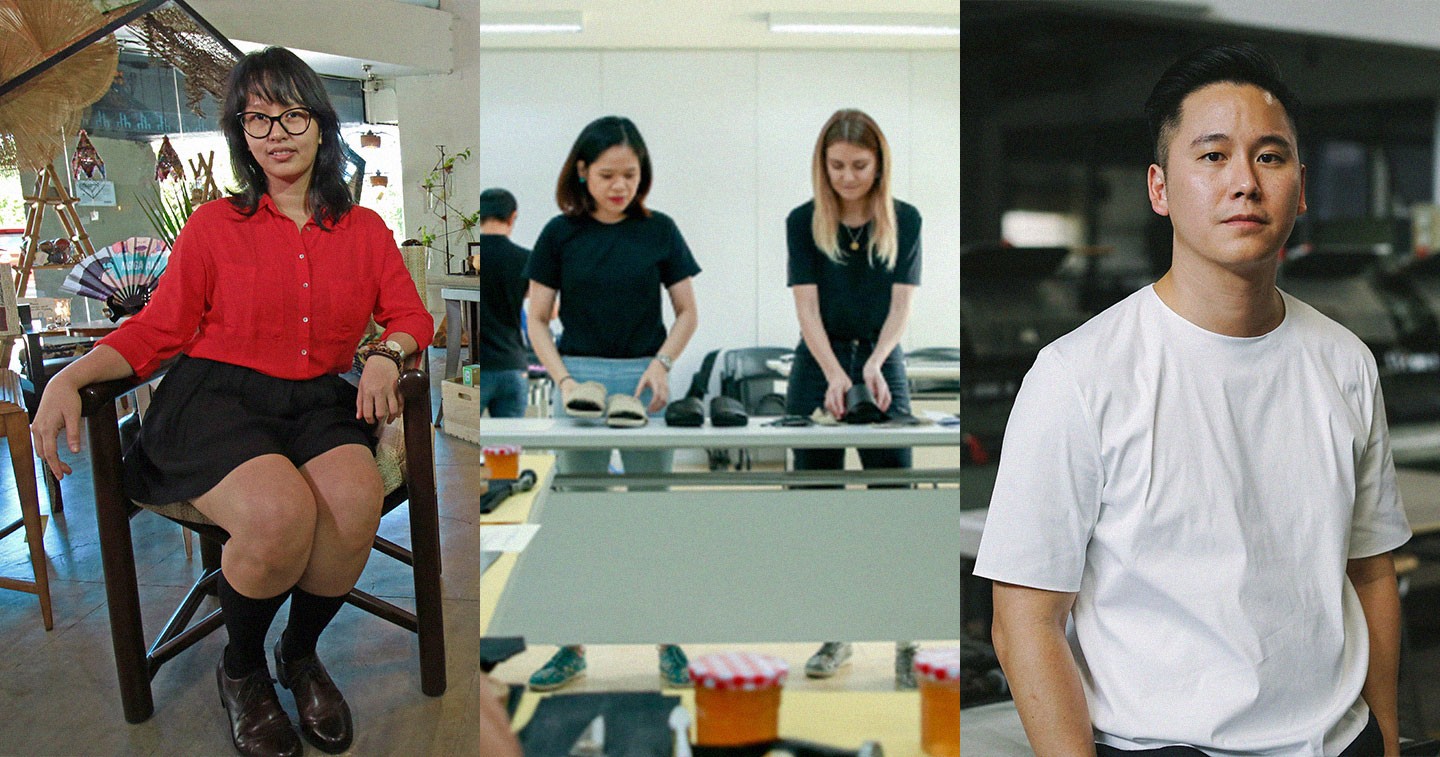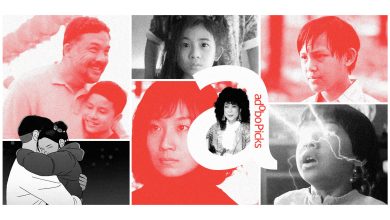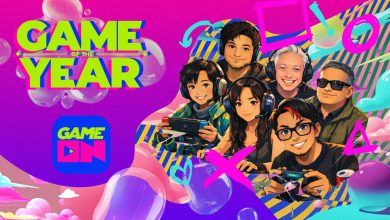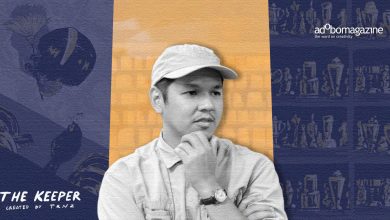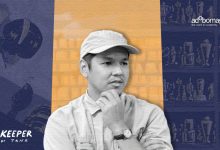MANILA, PHILIPPINES – Running a business in the creative industries can mean making bold and daring choices with whatever output you’re making – whether that’s a piece of art, a film, a campaign, a poster, or even a handcrafted product. The same holds true not just in design but in the way the business is run too. Here is a piece put together by the British Council and Melanie Sison that touches on how young creatives are redefining what their respective fields have been doing for generations.
Read on to find out more:
Taking over a family business is one thing that many take for granted. For many of them, the succession takes place in name alone – everything else, including the operations and management style – remains business as usual. Three young leaders, however, are daring to rock the boat, introducing innovations in tried-and-tested formulas borne out of need and creativity.
The furniture designer
The Holistic Coalition of the Willing (HOLICOW) was formed out of necessity – Kae Batiquin described it as a “panic group” that came together because recession in the West led to a loss of market for the furniture makers of Cebu City. However, their organization, which was co-founded by Debbie Palao, Kae’s aunt, thrived as it presented an alternative to buyers, one geared toward sustainability.
Artists who are part of HOLICOW take concrete measures to ensure that the products they are producing, and the processes they use, are geared toward sustainability and limiting their carbon footprint. Other countries such as Germany, which HOLICOW is exporting to, are very conscious of this approach to production as well. This does not just mean refraining from utilizing critically endangered and non-biodegradable materials, but also considering how much carbon they will be producing when shipping furniture made from metal versus rattan. It also means sourcing materials and training communities to become artisans in their own right to provide them with a source of income.
“We didn’t just become designers of furniture, we didn’t just become product makers, but system makers,” Kae said. “Instead of making products, we ended up making lifestyles, designing lifestyles.”
This conscious transition, however, was not welcomed by other designers from Cebu with open arms. “We said we are the coalition of the willing because not everyone was willing to redesign their production processes, some of which have been in place for generations,” Kae said. “You tell that to the people who established that process, and it’s like a mini-generational civil war.”
“We were like cows to slaughter. We’re not gonna last another year. We’re going out of tried-and-tested traditional methods,” she continued. Despite their fear, they persisted, and HOLICOW, from being a coalition of furniture makers, soon grew to accept other artisans from other industries in the fashion, jewelry, and home accessories . They also consider their buyers and visitors as partners in the creative process.
“They’re not just the buyers. I tell them, ‘Your feedback, your experience with the piece will go back to the community. You are part of the design.’”
Ee Soon, the printing heir
When Ee Soon Wei came back to Kuala Lumpur to run Art Printing Works (APW), a printing press run by their family, he admitted that he initially did not feel the drive to do his job. “I was probably the youngest person working in the factory and I wasn’t very motivated to come to work.”
It was when he realized what he was going through that brought him to his epiphany. “If I’m not motivated to come to work, how, then, could I build a team of young people?”
This fueled him to transform APW into what he calls a “creative campus”, an area that hosts a co-working space, a café, and an events space.
“We wanted to create a space for creatives to allow them to express and make an impression of what they are doing, so what we did as a hub was to create the right infrastructure, provide the right amenities to showcase the right lifestyle,” explained Soon Wei. “I want to create a hub that offers a capacity for creative people to express themselves and to create new outcomes and new businesses.”
Soon Wei’s efforts were partly driven by significant losses in their company. The printing business – including the Royal Press, the printing house his grandfather established – was going into decline. APW was already in debt and many of their sales were uncollected. Realizing this, Soon Wei sought to re-invent the company while making an effort to settle APW’s financial issues.
Like Kae, Soon Wei’s initiative was met with some resistance, as two generations of his family were heavily involved in the printing industry. However, he was able to convince them not just by sharing his vision with them, but also by realizing it. “We’ve been building spaces and those spaces have become strong proof of concept.” Getting this, he explained, will also get the trust of people, and he now has a consulting firm that is now exploring converting abandoned spaces in Kuala Lumpur into something similar to what he has done with APW.
“Traditionally, APW stands for ‘Art Printing Works’, it’s a printing company. But today, APW means a place where people can come together and do creative work together.”
Unyx, the shoemaker
Unlike Kae and Soon Wei, Unyx Sta. Ana’s efforts to start her own creative hub, Zapateria, was not met with resistance from her family. In fact, she started it with her 72-year old father, a decision that was borne out of a near fatal accident he had in 2016.
“It hit me that no one in the family [would] be able to follow [my father’s] footsteps,” said Unyx, who describes herself as anak ng magsasapatos [daughter of a shoemaker]. At the time, she was working in a tech start-up, but because of the value she put in her family’s legacy – she is the fifth generation of shoemakers – she decided to ease herself into the industry. Her goal of preserving the heritage of handmade shoemaking alive beyond her own family and even Marikina meant bringing in new talent to churn out new innovations. Thus, Zapateria, a co-creation hub for shoemakers and designers, was born.
“Even the earlier generations [were] artisans. They’re still here. We want to be able to learn from them, learn the skills, learn the wisdom, work closely with them so we can keep the craft alive, while at the same time introduce new ways of doing things,” she said.
Unyx does not see the rise of companies’ mass producing shoes as a competition for their artisanal pieces. “It’s different times now. It’s more of a community of sharing, learning from one another,” she said. “It’s really exciting for the Marikina shoe industry.”
The importance of community
While Unyx and Kae each have a firm vision in their head on what they want to do, they admitted that there were times when they found themselves questioning if they are on the right track. It was only when they became part of the Creative Innovators Programme of the British Council that they realized that they were not alone – and there were other people out there, including those outside the Philippines like Ee Soon, who are also daring to take those steps to shake things up.
“We became part of this program with different backgrounds, with different stages of where our hubs are at the moment, but still, each one of us had something to bring to the table,” said Unyx. “It helped so much that British Council has this very good way of building the culture. They put focus on values formation, which was very important to us. Everyone is aligned.”
“The fact that we were facing the same conundrums in different forms helped me [strengthen my] resolve and inspired me, that I’m not the only one doing this,” shared Kae. “There are equally passionate, competent, and remarkable, truly remarkable people, selfless people who are doing what they’re doing best in their own industries, in their own cities.”
About the Author:

Melanie Sison is a writer and editor whose works have previously been published in local and international publications such as the Philippine Star, Interaksyon, the World Bank blog, and SciDev.Net. Currently affiliated with INGOs, she writes primarily about social development topics, including gender, agriculture, and environment. She likes to travel and watch films in her spare time.


